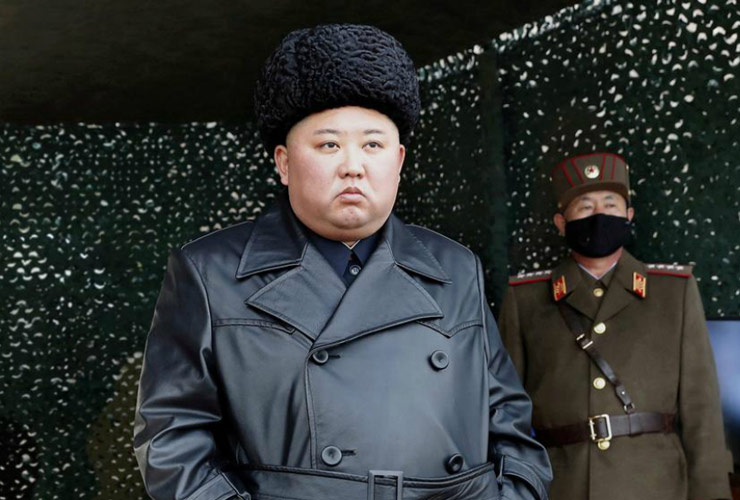Already a subscriber? Make sure to log into your account before viewing this content. You can access your account by hitting the “login” button on the top right corner. Still unable to see the content after signing in? Make sure your card on file is up-to-date.
The United Nations has released a new report accusing North Korea of intensifying its authoritarian grip by expanding the use of the death penalty and enforcing widespread forced labor (including among children).
Getting into it: The UN report, based on 314 interviews with North Korean escapees and extensive supporting materials, reveals that the regime has dramatically escalated its use of the death penalty in recent years. Since 2015, at least six new laws have expanded the scope of capital punishment to include vaguely defined offenses such as “anti-State propaganda” and the sharing of foreign media. Public executions (often carried out by firing squad) have become more frequent since 2020, with escapees reporting trials where individuals were executed alongside drug offenders simply for possessing South Korean dramas. These executions are often staged publicly to instill fear, and in some cases, even children are forced to witness them. Officials justify these extreme punishments as necessary for maintaining ideological purity and protecting national security.

The report also details the expansion of forced labor, particularly through so-called “shock brigades” (government-organized labor units that conscript citizens, including children, into work like mining and construction). These brigades are disproportionately filled with individuals from poor backgrounds who lack the means to bribe their way out. The UN found that thousands of orphans and street children have been forced into these roles, often working long hours in hazardous conditions. Deaths are common, but instead of addressing safety concerns, the government glorifies the deceased as martyrs who sacrificed themselves for the nation and its leader, Kim Jong Un. Children are also forced to perform manual labor under the guise of “life skills training,” even during school hours.
The crackdown on foreign information is also a central part of the regime’s strategy to isolate its citizens from the outside world. Special inspection units, including “Group 109,” routinely raid homes without warrants to confiscate phones, USB drives, and other devices suspected of containing foreign content. Before the COVID-19 pandemic, those caught with such materials might have been subjected to “revolutionary education,” but today they face imprisonment or even death. Despite these risks, consumption of foreign media reportedly continues, driven by a deep public hunger for information beyond state propaganda. Escapees say the penalties became especially harsh after 2020, with more people being executed for distributing content like K-dramas, music, and foreign news.
According to the report, between 50–80% of the population now owns a government-approved mobile phone, but all devices are tightly controlled. Apps are restricted to state-approved services, and internet access is essentially nonexistent for ordinary citizens. Instead, users are limited to a heavily censored national intranet. Authorities monitor all digital communications, and regular inspections are carried out to root out unauthorized media or messaging. Surveillance has extended to public spaces, workplaces, and even private homes, turning society into what one escapee described as “a self-policing prison.”
Finally, the report confirms the ongoing operation of at least four political prison camps where inmates are subjected to torture, starvation, and forced labor. These camps are used to detain not only political dissidents but also their family members under the practice of “guilt by association.” Though the government denies the existence of such camps, satellite imagery and survivor testimony paint a grim picture. Detainees often serve life sentences without trial, and many die from abuse, overwork, or malnutrition. While there have been minor reported improvements in the treatment of prisoners (such as slightly less physical violence by guards), conditions remain dire.
UN officials, including Human Rights Chief Volker Türk and DPRK Office Head James Heenan, have warned that if North Korea continues on its current path, its people will face even more suffering and repression. The UN is calling for the situation to be referred to the International Criminal Court and is urging the North Korean government to abolish political prison camps, end the death penalty, and begin aligning with international human rights obligations.







